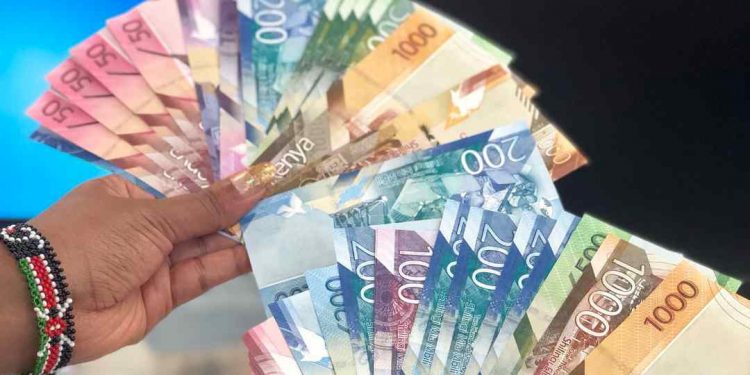The Kenya shilling’s exchange rate against the USD took an extreme swing on Thursday, after news of Kenya’s successful $1.5bn Eurobond and the over subscribed KShs. 75 billion infrastructure bond allayed fears of a dollar shortage in the short term.
When the markets opened on Friday, Central Bank quoted the average exchange rate for Thursday at 1USD= Kshs 145.8551.
Here is what experts think about the panic selling that triggered the sudden drop, and CBK’s efforts to keep it from dipping below KShs. 140 and distorting the market.
An interesting degree of panic is what’s happening in the FX market as speculators get shocked by Kenyan shilling strength. This is easily managed by the CBK as they just need to buy up the excess dollars and that would help build FX reserves
FIM Partners expects the KES to stabilise soon – and around 150/$ is easy to justify from an economist’s point of view. In my view, a little weaker at 155-160/$ would suit Kenya better with a view to shrinking the current account deficit.
-Charles Robertson (@CharlieTTEcon), Head of Micro Strategy at FIM Partners
The extreme volatility in the Kenya shilling exchange rate is not good for business since it is affecting business contracts and product pricing. However, the strengthening of the shilling is welcome for Kenyans since it’s expected to lower import prices.
An injection of dollars in the market by the central bank has likely spooked speculators. Now they want to know the central bank’s capacity to keep supporting the shilling. If the economy hasn’t changed, and foreign currency demand is more than inflows, then I expect the private sector to respond by stacking more dollars at these rates.
The biggest indicator for investors, importers, and exporters is likely the central bank’s import cover. That will determine if there’ll be dollar scarcity or not. If it is strong, say 5-6 months of import cover, the Kenya shilling could hold on to these gains for the second and third quarter.
-Rufas Kamau, Lead Market Analyst at foreign-exchange trading platform FXPesa
We see this as a sentiment play following the June 2024 KES 2Bn Eurobond buyback. This has raised overall confidence, including appetite from foreigners for the local infrastructure bond. In the most recent MPC briefing, the Central Bank governor stressed that the KES had overshot its fair value level.
With short term concerns of a default largely in the rearview mirror, inflows from multilateral lenders, and syndicate loans provide sufficient buffers, scope, and resources – in effect reducing currency risk.
Overall, we view the strengthening as a general increase in the supply of USD skewing the demand and supply dynamics in favour of a KES upswing. And of course the slide is augmented by speculative dollar hoarders selling in panic.
-Standard Investment Bank (@InvestwithSIB) on X.
Given that Kenya liberalised its capital account in the 1990s, the exchange rate is expected to move in either direction to reflect the forces of supply and demand at any given time.
Expectedly, the infrastructure bond elicited considerable foreign investor appetite, leading to the shilling rally, especially on the back of the sovereign’s successful Eurobond issuance that beat back quite convincingly earlier difficult risk concerns.
-John Gachora, Chair Kenya Bankers Association & NCBA Group Managing Director
What is important for the currency is STABILITY & not the LEVEL. It could as well stablise at 200, it doesn’t matter. Yo Yo is a bad bad thing for everyone – especially investors.
-Mohamed Wehliye, Senior Advisor, Saudi Central Bank on X.
Markets have opened. Eurobond default risk has evaporated. Speculative dollar positions unwinding.
-David Ndii, Chair of the President Council of Economic Advisors (CEA), on X.
The central bank showed up to buy, so I think they don’t want too much volatility. If they hadn’t come in we would probably be looking at levels of maybe 130 because everybody knows offshore inflows are coming.
That is a strong signal that they (the central bank) want the currency to stabilise. It has to be gradual.
-An unnamed trader told global news agency Reuters
There has been an unwinding of domestic dollar long positions. Not all foreign investors participating in the infrastructure bond auction had converted dollars to shilling.
–Samir Gadio, head of Africa strategy at Standard Chartered Plc., told Bloomberg.



